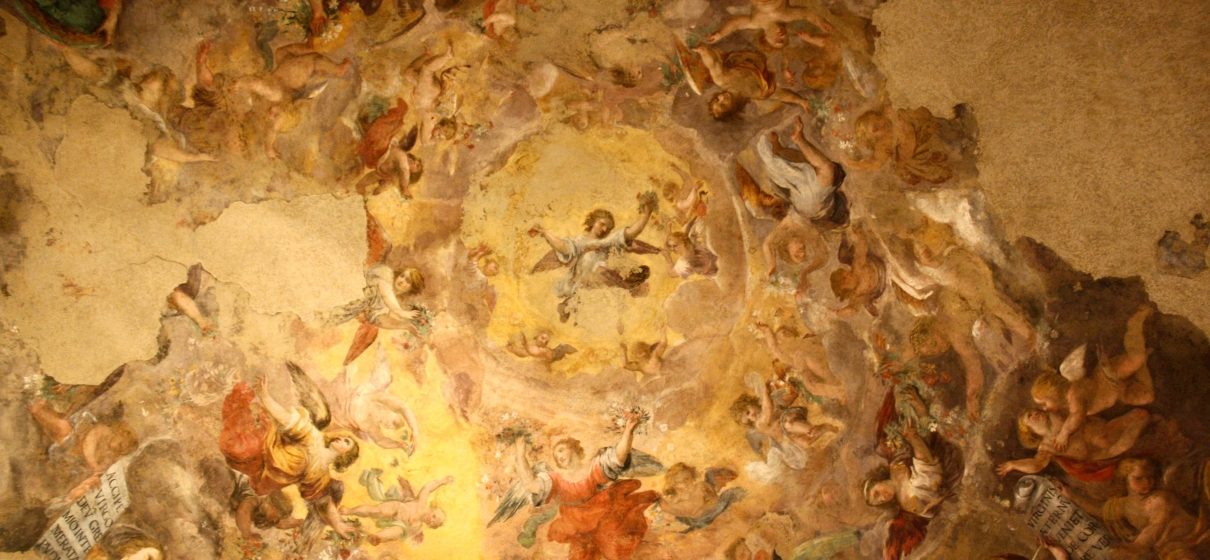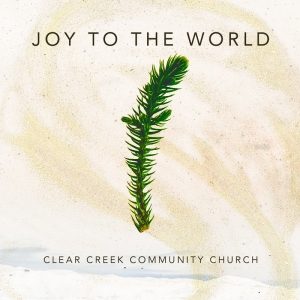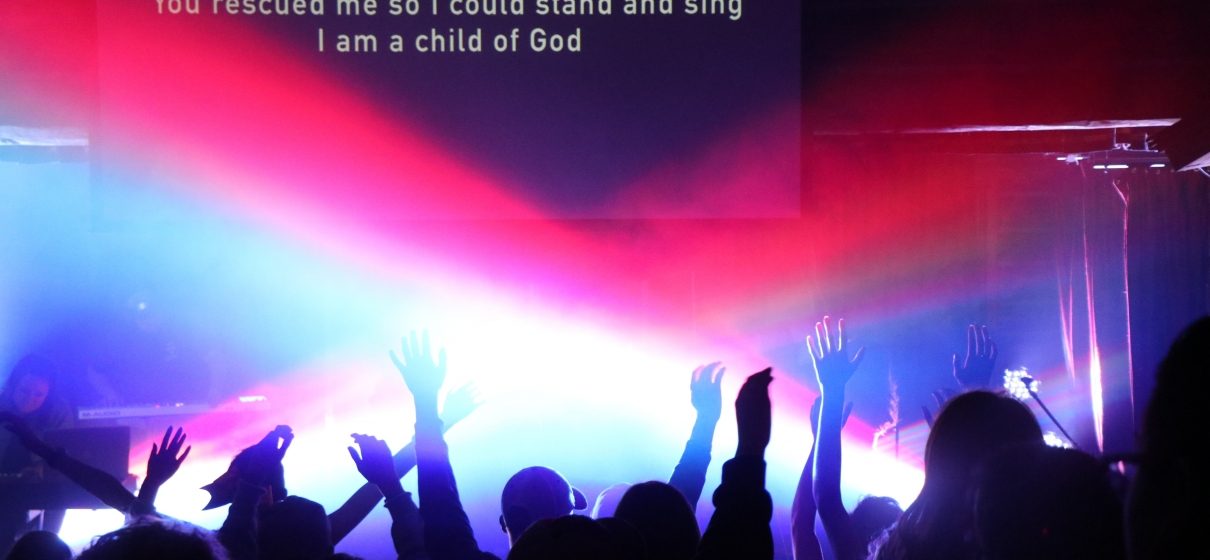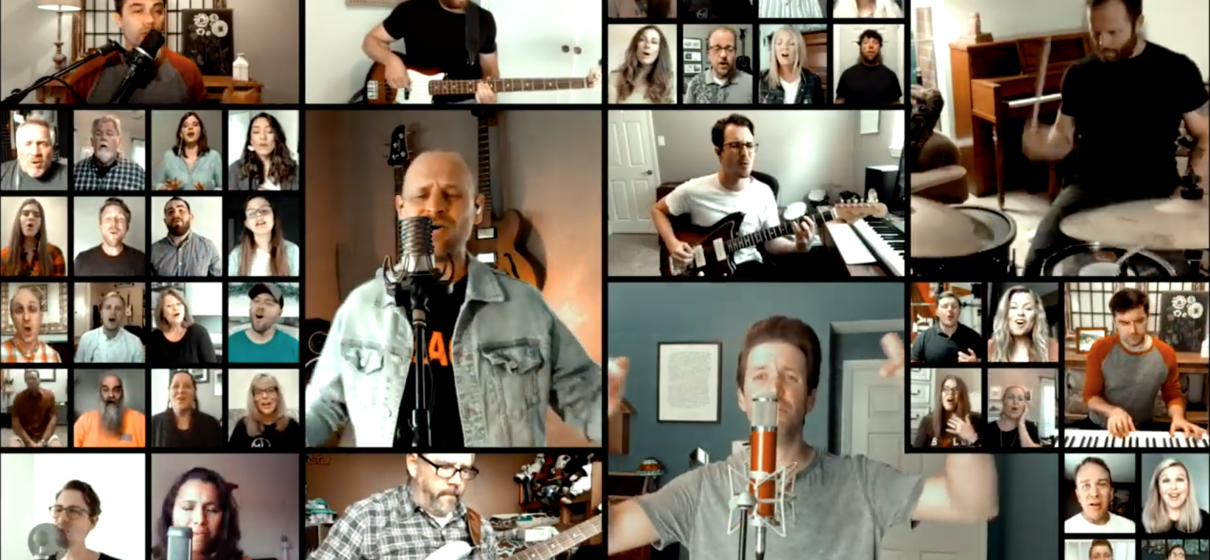4 Reasons Why You Should Sing at Church
Listen to this article here:
In our culture, singing in public is typically left to the professionals. It’s something most people enjoy listening to, but will only attempt if they are in the car by themselves, in the shower, or singing “Happy Birthday” at a birthday party.
I get it. Singing out loud is a very vulnerable thing to do. Most of us live our lives constantly managing how we are being perceived by others at any given moment. Singing in public could — in mere moments — destroy a lifetime of managing how we want others to see us.
So why do we sing so much at church?
If you’ve grown up in church, it’s just what you’ve always done. But for those new to church, it often feels weird and can be a big barrier to moving forward in your journey exploring the claims of Christ.
The truth of why we sing so much at church is that singing is a uniting action. Here are four different ways singing unites us as followers of Christ.
1. SINGING UNITES THE HEAD AND THE HEART
Singing in church unites our theology (how we think about God) with our doxology (how we praise God). It takes truths we know about God and uses them to stir up our affections for him. When we consider who God is and what he has done for us through the person and work of Jesus Christ, it should move us emotionally and drive us to praise him. Singing is a powerful way to accomplish this. Colossians 3:16 instructs us to “let the word of Christ dwell in [us] richly… singing psalms and hymns and spiritual songs with thankfulness in [our] hearts.”
2. SINGING UNITES US WITH OTHER BELIEVERS
When we sing in church, we are joining together to confess truths we hold fast as believers in Christ. No matter what our background or social status, we stand united as the body of Christ and with one voice declare the praises of God. And while God is the primary audience for our singing, those around us are encouraged and their faith is strengthened when they hear the people of God sing the praises of God. Ephesians 5:19 exhorts us to “be filled with the Spirit, addressing one another with psalms, hymns, and spiritual songs, singing and making melody to the Lord with your heart.”
3. SINGING UNITES US WITH ALL OF CREATION
Creation worships God. It always has. Whether it’s the early morning song of birds chirping or the majestic glory of a mountain vista, the ocean’s waves roaring or the beauty of a starlit sky, all of creation is giving praise to its Creator. When we sing, we are united with the rest of creation in giving God the glory that is due his name. Isaiah 55:12, Psalm 98:7-8, and Psalm 148:3 are just a few of the places where we see creation breaking forth into song and giving praise to the Lord Almighty. In Luke 19, Jesus himself says in response to being questioned about people singing loudly about him that, “if these were silent, even the very stones would cry out.”
4. SINGING UNITES US WITH HEAVEN
When we lift up our voices here and now, we are united with a heavenly chorus that is presently singing the praises of God, joining with believers that have gone before us. Myriads upon myriads of people from every tribe, nation, and tongue (Rev. 7:9-11) have, are, and will worship the Lamb who was slain — all proclaiming glory to him who sits on the throne (Rev. 5:13) and declaring his blessing, honor, and might forever and ever!
Ultimately, it’s not the songs or our singing that unite us; it is the gospel of Jesus Christ. Singing just gives us a common way to express it all corporately as the body of Christ. When we choose to not engage with the singing portion of our corporate gatherings, we are missing out on a key component of a formative activity in the Christian life.
The next time you step into a church service and the music begins choose to engage. Sing! Be united with your spiritual family! Let the good news and gospel truths you know stir your heart and affections for our Savior. Be an encouragement to those around you. Join with all of creation and those gathered around the throne, and worship the Lord in the splendor of his glory here and now!





 Our Arts Team just released a new recording of Joy to the World!
Our Arts Team just released a new recording of Joy to the World!




